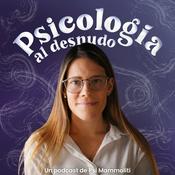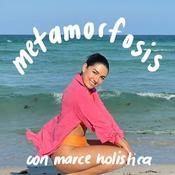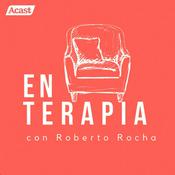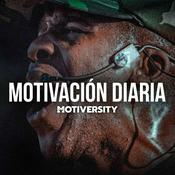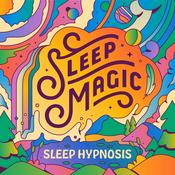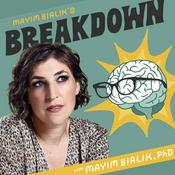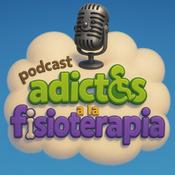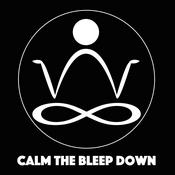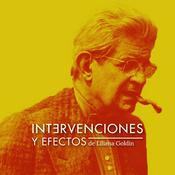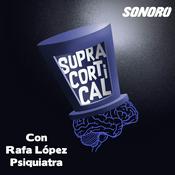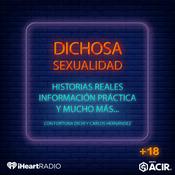92 episodios
- In this episode of Talk Dizzy To Me, vestibular physical therapists Dr. Abbie Ross, PT, NCS and Dr. Danielle Tolman, PT sit down with Kayla McCain, who shares her lived experience with Vestibular Migraine and PPPD (Persistent Postural-Perceptual Dizziness).
Kayla opens up about what symptoms she experienced, the long road to getting correctly diagnosed, and the strategies that helped her get back to living life again and rebuilding her confidence.
Key Takeaways:
-Validation and education reduce fear
-Vestibular migraine vs. PPPD presentations
-Recovery is often multi-factorial
-The “dizzy–anxious-dizzy cycle” is real
-Small strategies matter in real life
-Advocate for yourself
Where to find Kayla:nInstagram: @true_kaylaisms
Hosted by:
🎤 Dr. Abbie Ross, PT, NCS
🎤 Dr. Danielle Tolman, PT
For episode recommendations or requests, email us at: [email protected]
Connect with Us:
→ Book a free call with us
→ Get free resources straight to your inbox
→ Join The Dizzy Reset™ for FREE
→ Watch podcast episodes (and more) on YouTube
→ Follow us on Instagram
→ Follow us on TikTok
→ Follow us on Facebook
→ Disclaimer
→ Enjoying the podcast? Leave us a review!
Timestamps
02:10 Kayla’s background + work
03:03 The beginning: Halloween onset + “felt like a stroke” + terrifying dizziness
05:23 ER visit, fever, CT scan, ruled out cancer, sent home with meclizine
05:53 Misdiagnoses: anxiety dismissal + MS misdiagnosis (twice) + diagnosis finally at ~7 months
06:49 Early clues: menstrual migraine patterns + computer screen symptoms
08:43 Life impact: fear, avoiding leaving home, stopping running, weight gain, depression/anxiety
09:10 Panic + MRI + “Alice in Wonderland syndrome” episode during a trip
11:00 What is Alice in Wonderland syndrome?
11:58 How Kayla describes vestibular migraine
13:54 Triggers: hormones, stress, overstimulation, lights/sounds, grocery stores, concerts
15:22 Postpartum: aura/floaters, attacks while caring for an infant, fear of falling while holding baby
17:13 Trust + parenting: setting limits, positioning for safety, saying “no” when needed
19:33 Persistent vs episodic phases + supplements/therapy + later meds after kids
20:29 Feeling “seen”: why diagnosis and education changed everything
25:08 What helped most: counseling, vestibular therapy, exercise, pacing, rescue meds, acceptance
29:51 Practical tips: shopping at low-traffic times, migraine glasses, planned breaks, quiet resets
31:24 Resilience through chronic illness
32:51 Message for people with vestibular migraine + suspected 3PD: same principles can work again
36:13 VM vs 3PD: how symptoms felt different
39:03 3PD treatment journey: sensitive to meds, trying options, continued exercise, gradual dosing approach
42:26 Improvements
43:54 Advocacy + right provider: feeling heard is half the battle
45:19 Don’t give up: treatment options + therapy + counseling + meds (if needed)
46:16 Hope in action: Kayla races again
47:14 Where to follow Kayla: Instagram @true_true_kaylaisims
47:41 Closing thoughts: hope, mindset, and a path forward Functional Neurological Disorder (FND) Explained: What It Is and How It Overlaps With Dizziness
04/2/2026 | 57 minFunctional Neurological Disorder (FND) is often misunderstood... but it’s real, common, AND treatable. In this episode of Talk Dizzy To Me, vestibular physical therapists Dr. Abbie Ross, PT, NCS and Dr. Carly Lochala, PT, NCS sit down with Dr. Julie Hershberg, PT, NCS to explain what FND is, why it’s been minimized in healthcare, and how it overlaps with dizziness, migraine, dysautonomia/POTS, hypermobility/EDS, and vestibular disorders.
They break down brain networks like the default mode network and salience network, discuss common clinical clues (variability, attention-related shifts), and explain how treatment often starts with nervous system regulation, trust-building, and whole-person care—not just exercises.
If you’ve been told your symptoms are “all in your head,” this episode is for you.
Guest: Dr. Julie Hershberg / Reactive PT Instagram: @reactivept
Resources: FND resources hub, reactivept.com/FNDresources
Hosted by:
🎤 Dr. Abbie Ross, PT, NCS
🎤 Dr. Carly Lochala, PT, NCS
For episode recommendations or requests, email us at: [email protected]
Connect with Us:
→ Book a free call with us
→ Get free resources straight to your inbox
→ Join The Dizzy Reset™ for FREE
→ Watch podcast episodes (and more) on YouTube
→ Follow us on Instagram
→ Follow us on TikTok
→ Follow us on Facebook
→ Disclaimer
→ Enjoying the podcast? Leave us a review!
Timestamps
00:00 Welcome to Talk Dizzy To Me (intro)
01:42 What is Functional Neurological Disorder (FND)? How to explain it to patients
02:08 FND as a brain network dysfunction (function vs structure)
03:32 Why education improves outcomes in vestibular care + FND
04:02 Why FND has been misunderstood/minimized in healthcare
04:12 From “hysteria” and “conversion disorder” to modern neuroscience
06:05 Harmful stigma: being told symptoms are “fake” + medical trauma
08:19 What to look for when you suspect FND (clinical clues)
09:13 Variability, attention-related shifts, symptoms “moving”
10:35 Screening for other diagnoses + doing a thorough neuro screen
11:04 Common comorbidities missed: migraine, EDS/hypermobility, POTS/dysautonomia, vestibular disorders
12:53 What you’ll hear in the subjective history that suggests FND
15:13 Why “one test” (like Hoover) isn’t enough + signs vary by symptom type
16:54 Diagnostic criteria: what exists, what’s lacking, what needs improvement
19:12 Risk factors & triggers: sex differences, pain, sleep, physical injury/illness
21:01 Dizziness in FND: how common is it + vestibular system connection
21:59 Autonomic + sensory overlap (vestibular sympathetic reflex, otolith sensitivity)
24:44 Treatment approach: why there’s no one-size-fits-all protocol
25:38 Whole-person assessment + “pie chart” contributors + education foundation
29:00 Building trust, validation, and safety (especially after medical trauma)
31:18 Why play, fun, and salience matter for nervous system regulation + motor learning
32:45 Default mode network vs salience network explained simply
37:48 Social media + FND: what we think vs what research shows
41:26 Adapting vestibular rehab when FND is part of the picture
44:26 Safety + motor symptoms: when you prioritize regulation over exercise
48:18 Sensory inventory & building a regulation toolkit (OT-informed strategies)
51:00 Not everyone needs “calm”—some people need safe movement to regulate
52:18 “Mic drop” messages for people who feel stuck
55:21 Where to find Dr. Julie Hirschberg’s FND resources- In this episode of Talk Dizzy To Me, vestibular physical therapists Dr. Abbie Ross, PT, NCS and Dr. Danielle Tolman sit down with Laura Ehlers to share a powerful, real-life story of chronic dizziness, plus the long road to obtaining answers in a healthcare system that often defaults to “it’s BPPV” or “it’s anxiety.”Laura walks us through how her symptoms evolved after being hit in the head and what her life looks like living with dizziness. She also shares the layered diagnoses that often show up together in complex dizziness cases—vestibular migraine, PPPD (Persistent Postural-Perceptual Dizziness), dysautonomia/POTS (Postural Tachycardia Syndrome), and hypermobility/EDS (Ehlers-Danlos Syndrome), as well as the strategies that have helped her rebuild capacity.You’ll hear practical, experience-based advice on:- How to advocate for yourself when you’re not being believed- Why the right healthcare provider can be a game-changer- Medication realities: from sensitivities to finding what works
Guest: Laura Ehlers
Instagram: @laurasnaturallife
Hosted by:
🎤 Dr. Abbie Ross, PT, NCS
🎤 Dr. Danielle Tolman, PT
For episode recommendations or requests, email us at: [email protected]
Connect with Us:
→ Book a free call with us
→ Get free resources straight to your inbox
→ Join The Dizzy Reset™ for FREE
→ Watch podcast episodes (and more) on YouTube
→ Follow us on Instagram
→ Follow us on TikTok
→ Follow us on Facebook
→ Disclaimer
→ Enjoying the podcast? Leave us a review!
01:11 Laura’s background: chronic migraine, holistic health, and early dizziness tools
02:37 Early warning signs: highway driving issues, tunnel vision, “is it anxiety?”
03:05 Vision therapy → severe spinning vertigo onset
04:33 Current symptoms: nonstop rocking/boat sensation + visual flow triggers
04:59 Life impact: driving intolerance, travel limits, parenting challenges
06:27 The advocacy problem: being believed, speaking the “right language”
07:52 Misconceptions in healthcare: “If Epley didn’t work, you’re anxious”
09:47 Resources that helped: clinicians online + vestibular education on social media
10:42 Why primary care matters: getting treated even without a supportive specialist
11:09 Diagnoses explained: vestibular migraine + PPPD + dysautonomia/POTS spectrum
12:07 Layering issues: infections, mold gene, mast cell activity
13:06 Clinician perspective: frustration when patients get conflicting medical input
14:31 Hope vs acceptance: living in the chronic illness “seesaw”
15:59 Biggest mindset tool: document wins to prove progress is happening
17:35 “Early whispers” of symptoms
20:58 What helped most: rehab principles + sensory integration focus
21:20 Proprioception strategies: weighted inputs, holds, stomps, boots, blanket
22:46 Hyperbaric oxygen: regaining ability to read
23:15 Scaling exposure: “one sidewalk square at a time”
24:14 Breakthrough: walking on grass increased capacity
25:14 Histamine/mast cell stabilization: Zyrtec and sleep/sensory benefits
26:35 EDS/hypermobility: why screening matters in the “triad” conversation
28:40 Daily habits: caffeine consistency, electrolytes, potassium vs sodium insight
29:10 Nervous system work: somatic therapy + staying committed to movement
31:10 Mindset during flares: you’re not at square one; you’re stepping off the path
36:19 Encouragement for beginners: slow progress still adds up
37:45 Identity shift: grief + reinventing life (reading, painting, new interests)
39:06 Community: why 1:1 connections can beat unmoderated groups
41:30 Medication journey: fear, hesitancy, and why meds became a useful tool
44:55 Rescue meds (Ativan): pre-treating to participate in life moments
45:54 Micro-dosing approach: ultra-low starts + pharmacist check-ins
46:52 LDN + Zyrtec wins; sensitivity to other meds
48:40 Mic drop moments: what clinicians must understand + patient hope message How to Treat BPPV, Neuritis, and VM/PPPD: A Practical Guide for the Vestibular Therapist
07/1/2026 | 1 h 1 minIf you’re a physical therapist treating dizziness (or a patient trying to understand what’s going on), this episode is packed with practical, clinic-ready guidance. Dr. Abbie Ross, PT, NCS and Dr. Dani Tolman, PT welcome Dr. Sara MacDowell, PT & Dr. Sydney Duhe, PT from Dizzy Diagnostics to break down real-world vestibular cases—including BPPV with lingering symptoms, acute vertigo after the ER (vestibular neuritis / hypofunction), and the common overlap of vestibular migraine (VM) + Persistent Postural-Perceptual Dizziness (PPPD) with visual motion sensitivity.
You’ll learn how to think beyond textbook presentations, how to avoid missing multi-canal or bilateral BPPV, how to build patient buy-in with education, and how to dose and progress VOR/gaze stabilization and visual desensitization exercises for busy environments like grocery stores.
Episode Resources:
-Follow Dizzy Diagnostics on Instagram: @DizzyDiagnostics
-Advanced Neurotherapy Education (ANTE): advancedneurotherapyed.com
Hosted by:
🎤 Dr. Abbie Ross, PT, NCS
🎤 Dr. Danielle Tolman, PT
For episode recommendations or requests, email us at: [email protected]
Connect with Us:
→ Book a free call with us
→ Get free resources straight to your inbox
→ Join The Dizzy Reset
→ Watch podcast episodes (and more) on YouTube
→ Follow us on Instagram
→ Follow us on TikTok
→ Follow us on Facebook
→ Disclaimer
→ Enjoying the podcast? Leave us a review!
Timestamps
00:15 - Meet the guests: Sydney & Sarah (Dizzy Diagnostics) + their vestibular journeys
05:18 - Case 1: BPPV treated… but lingering dizziness/imbalance remains
06:39 - “First check: is BPPV truly resolved?” (all canals + short arm considerations)
07:36 - Fear avoidance + habituation: getting patients moving again safely
09:56 - Look beyond BPPV: hypofunction, migraine, cervicogenic contributors
12:45 - Multi-canal BPPV: why it’s tricky + how to prioritize treatment
14:36 - Treating multiple canals in one session
19:49 - Do you always schedule a follow-up after “straightforward” BPPV?
21:46 - Teaching self-treatment + “seeing is believing” re-check visits
24:08 - Case 2: ER “vertigo,” meclizine, lingering unsteadiness weeks later
25:35 - Full vestibular exam even with “negative imaging”
27:26 - What you expect in unilateral hypofunction: oculomotor, HIT/VHIT, balance, gait
29:14 - Treatment: education first, then VOR + balance + functional head movement
32:03 - Anxiety/fear avoidance: reframing dizziness as a “learning opportunity”
33:59 - Time-crunched HEP: “stacking” exercises into daily life
36:47 - VOR progression: dosing, symptom monitoring, advancing complexity
39:10 - The future of gaze stability: more specific dosing, unilateral work, wearables
42:37 - Case 3: Mid-30s postpartum, floaty dizziness + visual motion sensitivity (VM + PPPD/3PD)
44:03 - VM education: migraine features without head pain; hormonal shifts as triggers
45:28 - PPPD/3PD overlap + early prevention
51:49 - Treating visual motion sensitivity: patterns, videos, salience, real-world exposure
58:00 - Where to find Dizzy Diagnostics + resources- In this special episode of Talk Dizzy to Me, vestibular physical therapists Dr. Abbie Ross, PT, NCS and Dr. Dani Tolman, PT sit down with two giants in the vestibular field: Jeff Walter, PT, DPT, NCS and Helena Esmonde, PT, DPT, NCS (Vestibular First).
Jeff tries to stump the group with vestibular questions covering:
-The history of John Epley and his contributions to the field
-Alexander’s law, Brun’s nystagmus, and the origin of the word nystagmus
-A precise definition of vertigo
-Advanced use of the bow and lean test for horizontal canal BPPV
-What happens when BPPV maneuvers go “wrong” (short arm, conversion, retesting)
-Practical use of the Rinne test, recruitment, and tuning forks in vestibular practice
-How to interpret CT scans that “show” superior canal dehiscence (SCD)
-A rare case of cough-induced nystagmus
-The reality that some dizzy patients don’t fit neatly into any diagnosis—and why that’s okay
Whether you’re a vestibular therapist, audiologist, ENT provider, or someone with dizziness hungry for answers, this episode is packed with clinical pearls, red flags, and pattern recognition tips for vertigo, BPPV, nystagmus, and beyond.
Episode Resources:
Jeff Walter, PT, DPT, NCS
-https://www.vestibular.today
-MedBridge Courses: https://www.medbridge.com/educate/instructors/jeff-walter-dpt-ncs
Helena Esmonde, PT, DPT, NCS
-https://vestibularfirst.com
-Journal Club: https://vestibularfirst.com/education/journal-club/
-Educational Resources/Handouts: https://vestibularfirst.com/education/resources/
-Vestibular First 's Journal Club- Clinical Pearls from an Unusual Case of Vertigo: https://youtu.be/ASjx5Yet1So?si=3qu5LkiD_pEDagHq
For more FREE resources, click here.
Hosted by:
🎤 Dr. Abbie Ross, PT, NCS
🎤 Dr. Danielle Tolman, PT
For episode recommendations or requests, email us at: [email protected]
Connect with Us:
→ Book a free call with us
→ Get free resources straight to your inbox
→ Join The Dizzy Reset
→ Watch podcast episodes (and more) on YouTube
→ Follow us on Instagram
→ Follow us on TikTok
→ Follow us on Facebook
→ Disclaimer
→ Enjoying the podcast? Leave us a review!
Timestamps
00:00 – Intro
00:15 – Meet the Hosts & Guests
02:09 – Education Resources & Journal Club
03:08 – History Lesson: Dr. John Epley
06:21 – Alexander’s Law Explained
09:39 – Gustav Alexander’s Shocking Death
11:10 – Origin of the Term “Nystagmus”
13:31 – Brun’s Nystagmus & CPA Tumors
15:10 – Defining Vertigo (ICVD-Based)
18:22 – Bow & Lean Test: Angles, Mechanics & Clinical Pearls
23:24 – Short Arm / Anterior Arm BPPV & Tricks to Get Crystals Moving
27:34 – Retesting Posterior Canal BPPV: When You Re-Create the Problem
32:23 – Short Arm Debris & “Wimpy” Persistent Torsion
35:08 – Maneuver Names, Variations & Confusion in the Literature
38:53 – Tuning Forks in Vestibular & ENT Practice
45:19 – CT & Superior Canal Dehiscence: Might vs Definitely
49:22 – Cough-Induced Nystagmus
51:39 – Pattern Recognition, Edge Cases & Not Knowing Everything
56:15 – Reassuring Patients & “Doing the Next Right Thing”
Más podcasts de Salud y forma física
Podcasts a la moda de Salud y forma física
Acerca de Talk Dizzy To Me
We’re just two vestibuloholics excitedly bringing you a comprehensive view into the complex field of dizziness. Made for both clinicians and patients, we’re aiming to provide you with endless resources, tips & tricks, interviews with experts, and so. much. more.
Hosted by Dr. Abbie Ross, PT, NCS and Dr. Danielle Tolman, PT
Sitio web del podcastEscucha Talk Dizzy To Me, Huberman Lab y muchos más podcasts de todo el mundo con la aplicación de radio.net
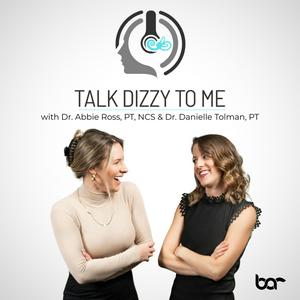
Descarga la app gratuita: radio.net
- Añadir radios y podcasts a favoritos
- Transmisión por Wi-Fi y Bluetooth
- Carplay & Android Auto compatible
- Muchas otras funciones de la app
Descarga la app gratuita: radio.net
- Añadir radios y podcasts a favoritos
- Transmisión por Wi-Fi y Bluetooth
- Carplay & Android Auto compatible
- Muchas otras funciones de la app


Talk Dizzy To Me
Escanea el código,
Descarga la app,
Escucha.
Descarga la app,
Escucha.





